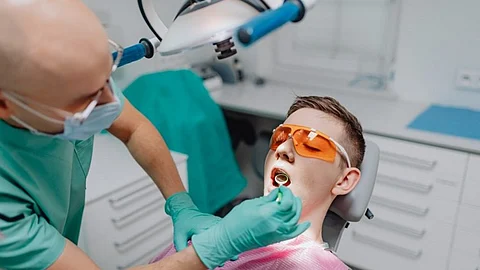What Is Suboxone and Why Is It Used?
Suboxone is a medication made up of two ingredients: buprenorphine and naloxone. It’s used to treat people who are struggling with opioid addiction. Instead of creating the same high that other opioids do, Suboxone helps reduce cravings and withdrawal symptoms, which can make the recovery process more manageable.
It’s taken either as a film that dissolves under the tongue or as a tablet. This method of taking the medication is convenient, but it also means it stays in your mouth longer, which brings us to the oral health connection.
Dry Mouth: A Common Issue
One of the first oral health problems reported by Suboxone users is dry mouth. Saliva plays a big role in keeping your mouth healthy. It helps wash away bacteria, neutralize acids, and protect your teeth. Without enough saliva, your mouth becomes a breeding ground for bacteria and plaque.
When Suboxone sits under your tongue, it can reduce saliva flow in that area. Over time, this can lead to tooth decay, gum irritation, and bad breath. You might not notice it right away, but these small issues can grow into bigger problems.
Tooth Decay and Cavities
Another concern is tooth decay. Several users have reported sudden tooth pain or broken teeth, even when they haven’t had dental problems before. This is likely due to a combination of dry mouth and the acidic environment created when Suboxone is dissolved in the mouth.
When the mouth becomes dry and acidic, it weakens tooth enamel. This makes teeth more vulnerable to cavities. If Suboxone is being taken daily over months or years, the risk becomes even higher, especially if regular dental care is not being maintained.
Gum Inflammation and Sensitivity
Alongside tooth problems, some users also experience gum irritation or soreness. Inflammation in the gums can be uncomfortable and make brushing and flossing painful, which might lead to people avoiding oral care altogether. That’s when things can get worse.
Gum disease doesn’t always hurt in the beginning. But over time, untreated gum problems can lead to gum recession, infections, and even tooth loss. If you're taking Suboxone and notice bleeding, swelling, or discomfort in your gums, it’s worth speaking with a dentist.
How You Can Protect Your Oral Health
If you’re taking Suboxone, it doesn’t mean you’re destined to have dental problems. With the right steps, you can keep your mouth healthy:
Drink plenty of water to combat dry mouth
Use a fluoride toothpaste to help strengthen enamel
Avoid sugary snacks and drinks that feed harmful bacteria
Consider mouth rinses designed to help with dry mouth
Visit your dentist regularly and tell them you’re using Suboxone
Rinse your mouth after taking your medication to remove any residue
Being proactive makes a huge difference. Even small habits can go a long way in keeping your teeth and gums in good shape.
Final Thoughts
Suboxone is an important medication that plays a life-saving role in addiction recovery. But it’s also important to be aware of how it can affect your oral health. By understanding the risks and taking simple steps to care for your mouth, you can avoid unwanted dental issues and keep your smile strong throughout your journey.


